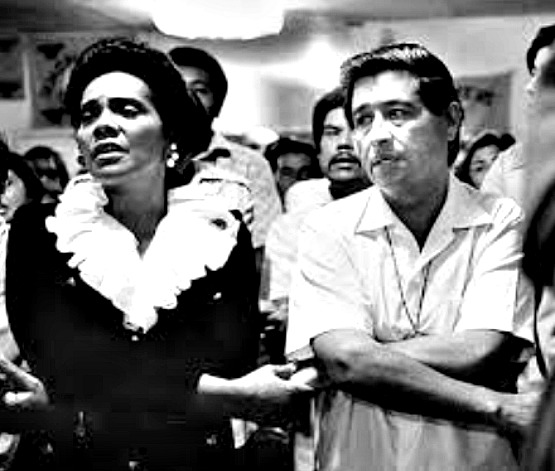As we near the 50th anniversary of his assassination, it is safe to say Dr. Martin Luther King, Jr. was stolen from us much too soon. I have listened to his final speech more times than I can count. His words in Montgomery the night before his murder were too specific and pointed to be a coincidence. I often wonder what he knew or what he thought after he left the pulpit that night. Mostly, I wonder what was next.
One of the common misconceptions about Dr. King is that he only cared about causes that affected Black people. In fact, he stood by what he is quoted saying, “Injustice anywhere is a threat to justice everywhere.” Dr. King reached out to Latino leaders in 1968, hoping to unite low-income communities across the U.S. as he planned “The Poor People’s March.”
Dr. King took an intersectional approach to fighting for justice and helped mobilize Latinos of all racial backgrounds. With the Poor People’s March and campaign, Dr. King planned to join forces with leaders of minority communities across the country in hopes of bringing justice to poor communities; thus continuing his work across racial lines during a time when he was considered racist for being pro-black.
In 1963, Dr. King pushed for a strong Latino presence at The March on Washington, asking Gilberto Valentin, President of the Puerto Rican Day Parade to bring his supporters and deliver remarks in Spanish at the rally.
While visiting Puerto Rico, he said, “Over and over again, it has been proven that individuals of minority groups can, even in the midst of their oppression, rise up and make creative contributions which reveal that there is no truth in the idea of inferiority.”
In 1968, in support of Cesar Chavez during a hunger strike sending him a telegraph that read:
“The plight of your people and ours is so grave that we all desperately need the inspiring example and effective leadership you have given.”
King hoped to join Chavez in California later that year in support of his work. Though he never made the trip, his wife, Coretta Scott King would travel to California in her husband’s stead to support Chavez’s efforts in 1970 while Chavez was jailed in Salinas, California.
While there, she delivered remarks to two-thousand farm workers. “Our struggle, like yours — that is, the struggle of Black people — could not be won by us alone, we had to find allies among the Americans of good will, Black, Brown, and White, who are ashamed of poverty in a trillion dollar economy. That is why your boycotts have succeeded. While some Americans are willing to forget the poor and if necessary suppress them with violence and brutality, there are still many Americans who cannot live with the immorality of inequality. They believe the heritage of this nation is decency and fair play. They would not eat grapes when grapes became a symbol of oppression and they will not eat lettuce, now that it has become tainted with injustice. Black people and Brown people are herded at the bottom and told to be quiet and to wait for slow change. But change has never come to us in waiting. Waiting has multiplied the profits of the rich, but it deadens and depresses those below. We are not enemies of the nation, but we are treated as if we were conquered and enslaved. We have fed and clothed the nation by our sweat and toil, but our share in its goods is the share of prisoners. So I know that among you, your children are undiscovered, undeveloped people of talent. Cesar Chavez is not an accident; he is a genius of his people, and their union, the farm workers union, is a hero union. When you have succeeded in making your lives more secure and richer, the whole nation will benefit. That is why your struggle has deeper dimensions than a strike for wages. You are demanding a place in the halls of man. You are saying there are no lowly people, there are only people who are forced down,” she remarked.
Dr. King stood in solidarity with all marginalized people, and Coretta Scott King picked up the mantle where it was ripped from his hands. But one can’t help but wonder, what would have happened if he were alive today or if he had lived long enough to see us move closer to realizing his dream? What causes would he have supported? And where would his prominence and influence have taken him? What we know for sure is he would have been working to promote the cause of justice and peace for all.
Dr. King knew there was power in strength and in unity of minority communities. More so, he knew that our history and futures were inextricably tied together, and he would fight against injustice no matter where it took him.
Gary Hardie
He attended the University of Nevada, Las Vegas, majoring in English, with a minor in marketing and is pursuing his MBA in Organizational Leadership and Sustainable Business Practices at Pepperdine University.
Hardie currently works as a Regional Manager for a non-profit educational service provider in Los Angeles providing extended learning opportunities in after school, intervention, outdoor education and summer programming.
He also serves as a governing Board Member for the Lynwood Unified School District Board of Education, the same district he attended school growing up.
His work and volunteer experience in public school settings has provided him with expertise in financial planning, budgets, organizational development, staffing, personnel, parent relations, grant writing and program development.

